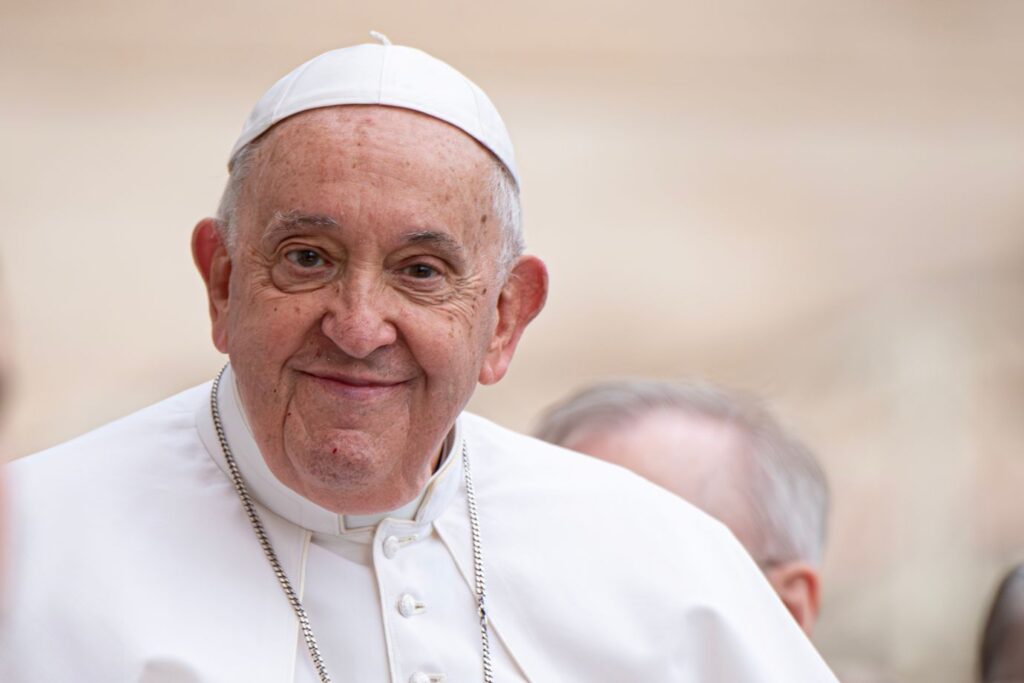The passing of Pope Francis marks the end of an era for the Catholic Church. In his final public appearance on Easter Sunday, Pope Francis delivered his Easter message, calling for peace in global conflicts, particularly in Gaza and Ukraine. He emphasised the importance of freedom of religion, thought, and expression, stating, “There can be no peace without freedom of religion, freedom of thought, freedom of expression and respect for the views of others”.
Elected in 2013 as the first Latin American pope, Pope Francis was initially seen as a moral conservative. However, his passion for social justice and welfare, rooted in his Jesuit background, quickly became evident. Despite this, he faced criticism from both conservatives, who found him too progressive, and progressives, who felt he did not go far enough.
Pope Francis was a controversial figure who shifted the tone of the Catholic Church without changing its core teachings. His notable legacy includes advocating for gender equality in one of the most patriarchal institutions. Pope Francis appointed around 20 women to positions of authority within the Vatican, including the historic appointment of Sister Simona Brambilla to lead a Vatican department. He also included women in the 2024 synod, officially known as the 16th Ordinary General Assembly of the Synod of Bishops, granting voting rights to 57 women out of 368 attendees. The final document of the Synod explicitly stated that there is “no reason or impediment” to prevent women from assuming leadership roles in the Church. Following this, he opened up roles such as catechist and lector to women, which were previously reserved for men. He emphasised the need for more women to study and teach theology, aiming to integrate their perspectives into church teachings and governance.
Pope Francis supported the ongoing involvement of women in leadership roles in the Roman Curia, the central administrative body of the Catholic Church which assists the pope in governing the Church and in local parishes.
In November 2022, Pope Francis told reporters, “The struggle for women’s rights is a continuing struggle. We have to continue struggling for this because women are a gift. God did not create man and then give him a lapdog to play with. He created both equal, man and woman”.
Despite these words, he ruled out allowing women to become priests but advocated for women to be given more leadership roles. While he made significant strides in including women in decision-making roles, much progress is still needed to achieve full equality for women within the Church.
Pope Francis’s stance on LGBTQI issues also reflected his commitment to social justice and welfare. While he did not change the church’s official teachings, his more inclusive tone and statements provided a sense of hope and acceptance for many within the LGBTQI community.
His famous quote, “If a person is gay and seeks God and has good will, who am I to judge him?” resonated deeply with many people around the world. He also advocated that same sex couples be allowed to have their own families saying, “They are children of God and have a right to a family. Nobody should be thrown out or be made miserable over it.”
Pope Francis’s tenure was also marked by his efforts to address the Catholic Church’s historical sex abuse scandals. When he took office in 2013, the Church was embroiled in a global crisis over child sex abuse by clergy and institutional cover-ups. Pope Francis took significant steps to confront this issue, including sanctioning top clergy and making the reporting of abuse mandatory. He established the Pontifical Commission for the Protection of Minors in 2014, although it faced criticism and resignations from members who felt the Vatican was not fully committed to reform. A turning point came in 2018 when Pope Francis admitted to making “grave mistakes” in handling abuse cases in Chile, leading to the resignation of all Chilean bishops and in 2019, he defrocked former US Cardinal Theodore McCarrick after he was found guilty of sexually abusing a teenager. Despite these actions, more systemic changes are needed to fully address the crisis and ensure accountability within the Church.
In Australia, where only 20 per cent of the population identified as Catholic in the 2021 census, Pope Francis’s efforts towards inclusivity and social justice within the Catholic Church remains incomplete and fraught with challenges. His efforts to elevate the roles of women and adopt a more compassionate stance towards the LGBTQI community marked a departure from traditional norms. However, these changes have not fully addressed the deep-rooted patriarchal structures and doctrinal rigidity that continue to limit true equality within the Church.
Regardless of religious beliefs, there are approximately 1.406 billion Catholics worldwide and as the world grapples with the rise of anti-rights movements and increasing polarisation, the future of the Catholic Church under a new Pope is uncertain. The potential for regression in the face of these global trends is a real concern.
In such unpredictable and often hateful times, the direction the Church takes could either reinforce the progress made or undo the strides towards a more inclusive and just institution. The fear is that without a strong commitment to the principles of equality and justice championed by Pope Francis, the Church may retreat into conservatism, alienating those who have found hope in its recent transformations.
Become a Women’s Agenda Foundation member and support our work! We are 100% independent and women-owned. Every day, we cover the news from a women’s perspective, advocating for women’s safety, economic security, health and opportunities. Foundation memberships are currently just $5 a month.
Bonus: you’ll receive our weekly editor’s wrap of the key stories to know every Saturday.


